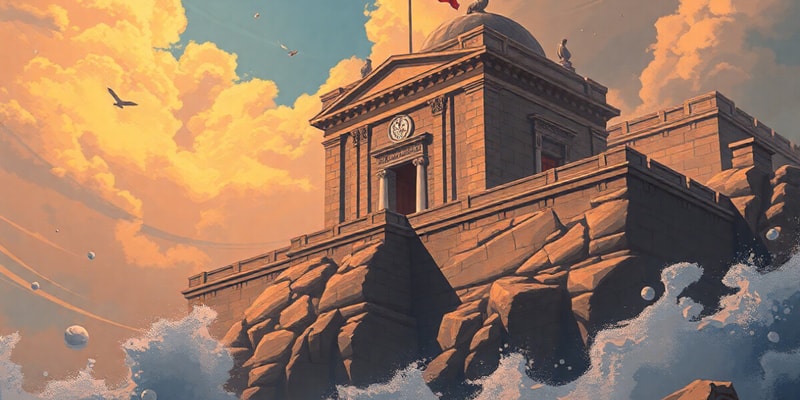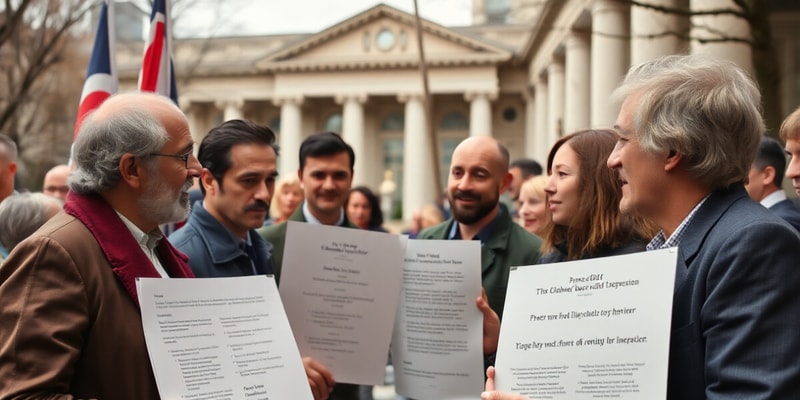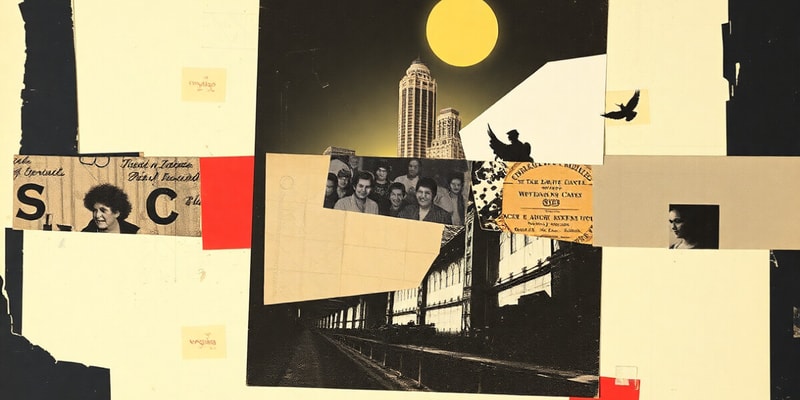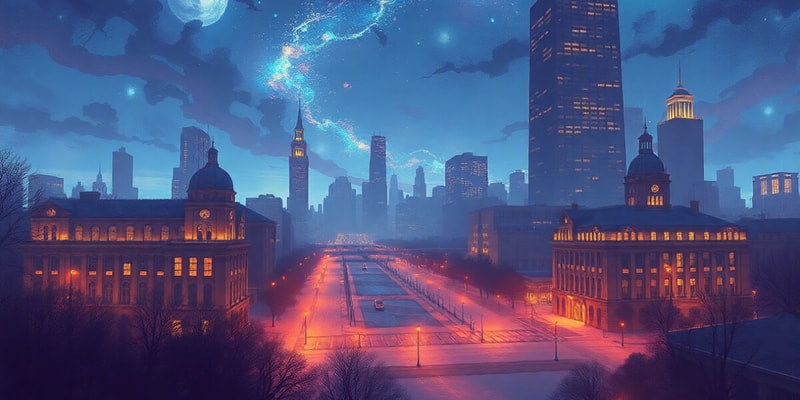Podcast
Questions and Answers
When was the committee on the freedom of expression appointed?
When was the committee on the freedom of expression appointed?
The University of Chicago was founded with a commitment to censorship in academic discussions.
The University of Chicago was founded with a commitment to censorship in academic discussions.
False
Who appointed the committee on the freedom of expression?
Who appointed the committee on the freedom of expression?
Robert J. Zimmer and Provost Eric D. Isaacs
In 1902, president William Rainey Harper declared that the principle of complete freedom of expression is _____ .
In 1902, president William Rainey Harper declared that the principle of complete freedom of expression is _____ .
Signup and view all the answers
Who was invited to lecture on campus 30 years after Harper's address, which led to significant protests?
Who was invited to lecture on campus 30 years after Harper's address, which led to significant protests?
Signup and view all the answers
According to Robert M. Hutchins, universities exist for inquiry and without it, they cease to be universities.
According to Robert M. Hutchins, universities exist for inquiry and without it, they cease to be universities.
Signup and view all the answers
What did president Edward H. Levi celebrate in his inaugural address?
What did president Edward H. Levi celebrate in his inaugural address?
Signup and view all the answers
Hanna Holborn believed that education should not make people _____, it should make them think.
Hanna Holborn believed that education should not make people _____, it should make them think.
Signup and view all the answers
Match the following individuals with their statements or beliefs:
Match the following individuals with their statements or beliefs:
Signup and view all the answers
What was one of the goals of the committee on freedom of expression?
What was one of the goals of the committee on freedom of expression?
Signup and view all the answers
Robert M. Hutchins believed that universities exist solely for the purpose of providing comfort to students.
Robert M. Hutchins believed that universities exist solely for the purpose of providing comfort to students.
Signup and view all the answers
Hanna Holborn believed that education should not make people comfortable, it should make them _____ .
Hanna Holborn believed that education should not make people comfortable, it should make them _____ .
Signup and view all the answers
Match the following presidents with their beliefs or declarations:
Match the following presidents with their beliefs or declarations:
Signup and view all the answers
Who triggered a storm of protests after being invited to lecture on campus 30 years post-Harper's address?
Who triggered a storm of protests after being invited to lecture on campus 30 years post-Harper's address?
Signup and view all the answers
The University of Chicago was founded on the principles of restricting freedom of expression.
The University of Chicago was founded on the principles of restricting freedom of expression.
Signup and view all the answers
What did President Robert M. Hutchins respond regarding the protestors?
What did President Robert M. Hutchins respond regarding the protestors?
Signup and view all the answers
The committee on the freedom of expression was appointed in _____ .
The committee on the freedom of expression was appointed in _____ .
Signup and view all the answers
Which principle did President William Rainey Harper declare in his 1902 address?
Which principle did President William Rainey Harper declare in his 1902 address?
Signup and view all the answers
Study Notes
Committee on Freedom of Expression
- Appointed in July 2014
- Appointed by Robert J. Zimmer and Provost Eric D. Isaacs
- Goal: Draft a statement emphasizing the university's commitment to free, robust, and uninhibited debate.
University of Chicago's History of Freedom of Expression
- University founded with a dedication to preserving and celebrating freedom of expression.
- 1902: President William Rainey Harper declared complete freedom of expression fundamental.
- 1932: William Z. Foster's lecture sparked protests.
- Robert M. Hutchins's response: Free inquiry is vital; discussion is the solution to opposed ideas.
- 1968: President Edward H. Levi highlighted the university's commitment to freedom of inquiry as an inheritance.
- Hanna Holborn's view: Education aims for critical thinking, not comfort.
Studying That Suits You
Use AI to generate personalized quizzes and flashcards to suit your learning preferences.
Description
Explore the history and goals of the University of Chicago's Committee on Freedom of Expression. This quiz covers significant milestones and influential figures that have shaped the university's commitment to free debate and inquiry. Test your knowledge of how freedom of expression has been upheld at the institution since its founding.




